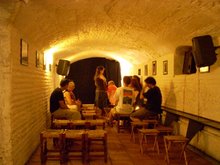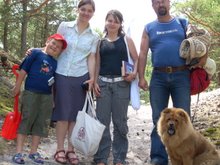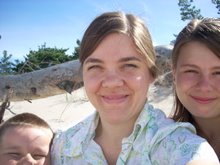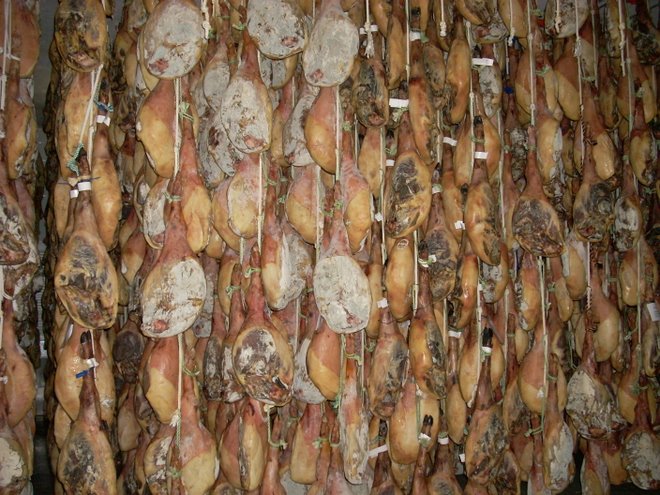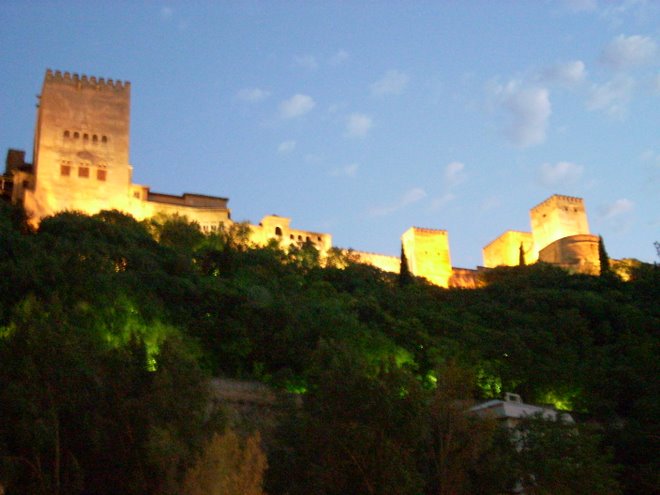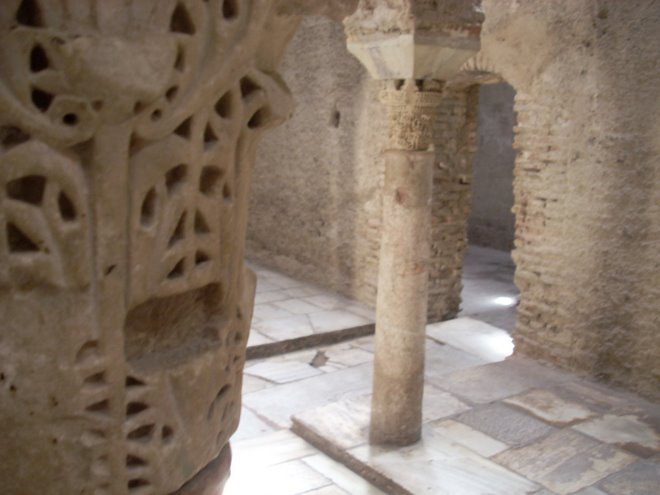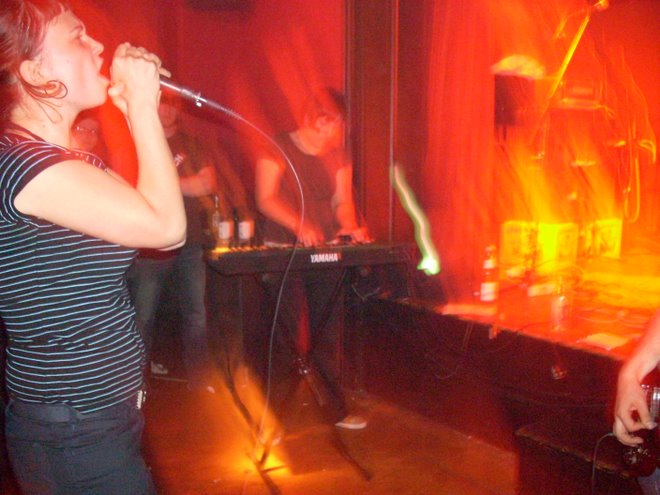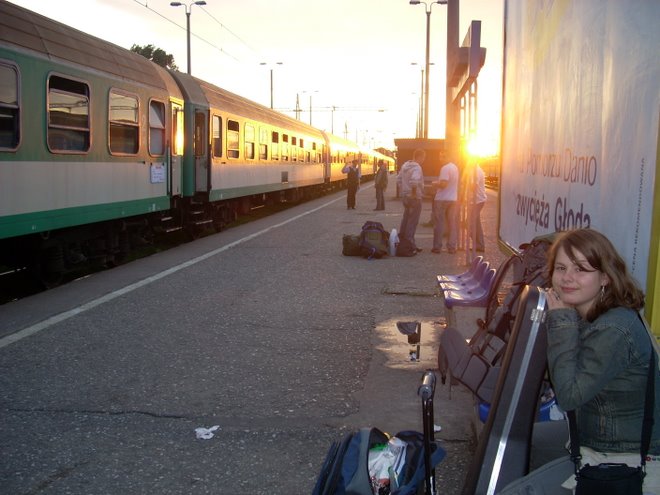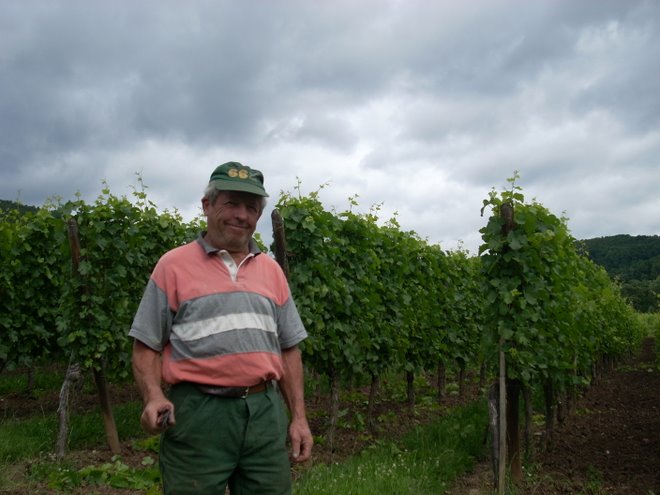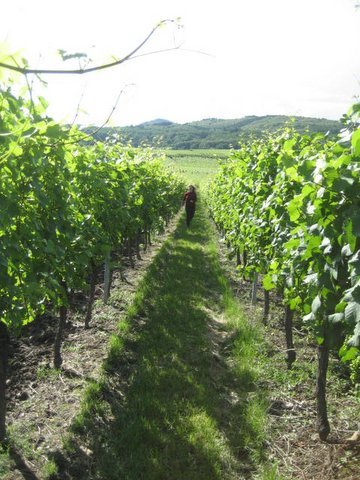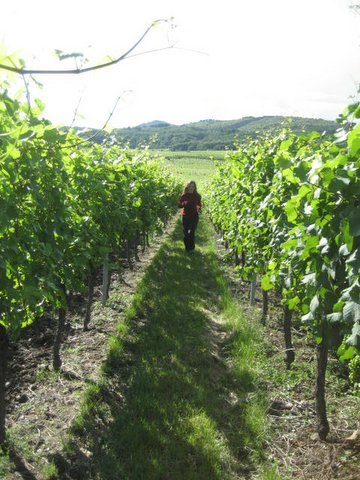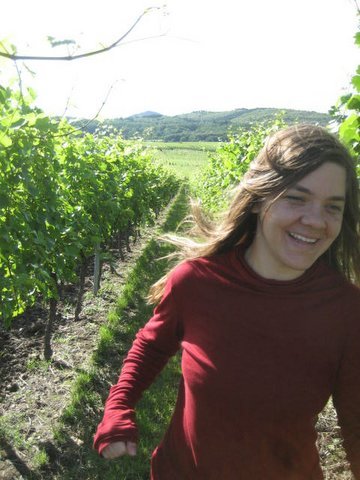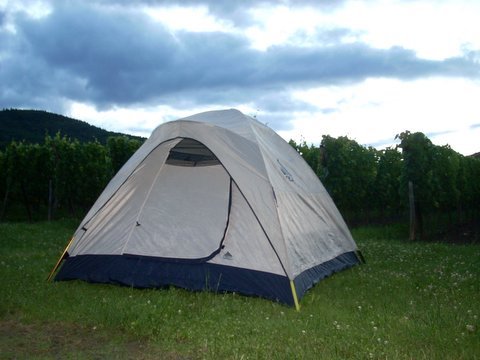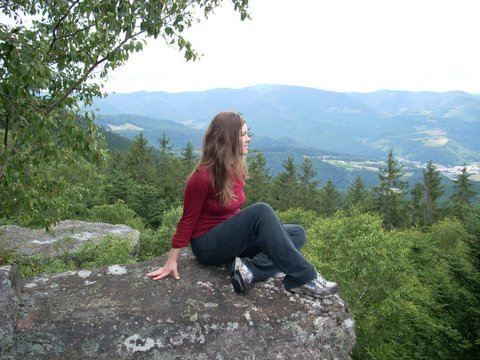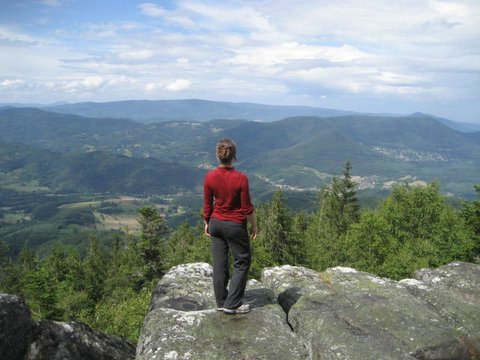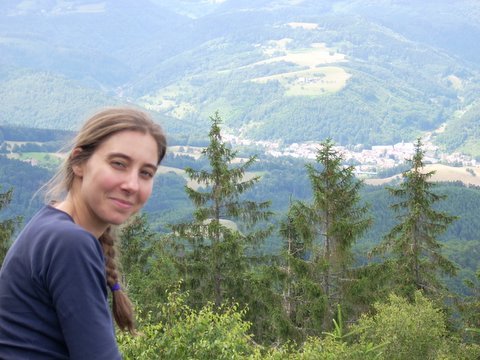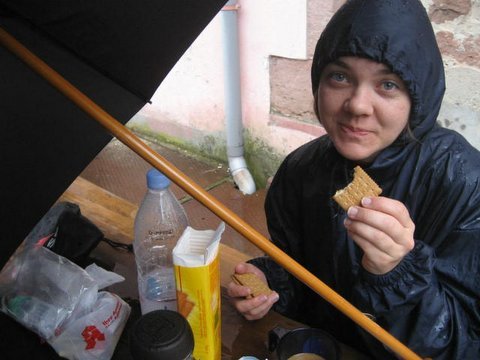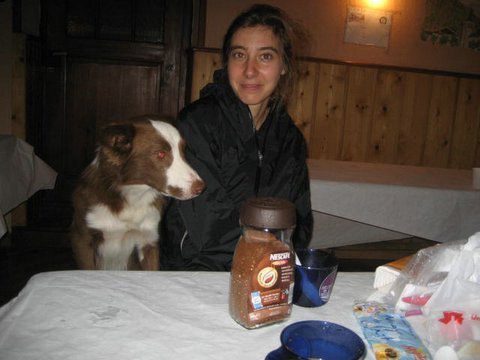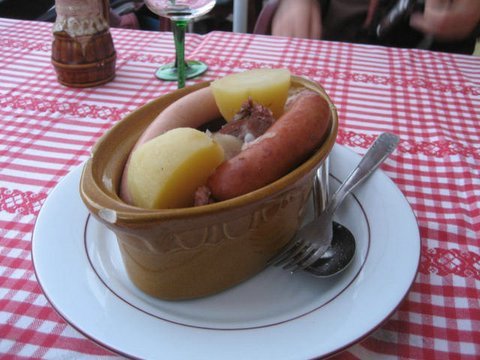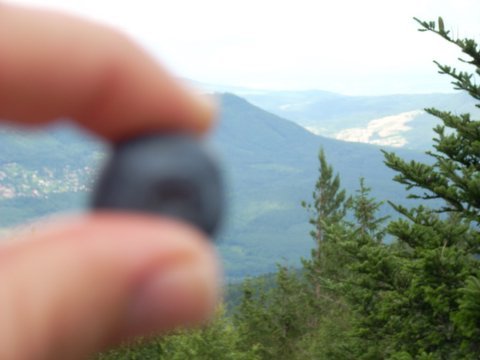 I was looking forward to passing my time today (Sunday, August 12--my last full day in Madrid) in a leisurely manner--to completely embrace the Spanish way one last time: stop by Atocha train station to reserve a seat to Dusseldorf, Germany, visit El Rastro (Madrid's Sunday tradition--the largest open-air flea market in all of Europe), drink a cafe con leche by a fountain on a terraza and read a few pages and journal a while, camp for a couple hours in a locutorio to fill in the gaps of stories, insights and images of this adventure, and then have a beer with some Madrileños or viajeros. But no! Madrid said no!
I was looking forward to passing my time today (Sunday, August 12--my last full day in Madrid) in a leisurely manner--to completely embrace the Spanish way one last time: stop by Atocha train station to reserve a seat to Dusseldorf, Germany, visit El Rastro (Madrid's Sunday tradition--the largest open-air flea market in all of Europe), drink a cafe con leche by a fountain on a terraza and read a few pages and journal a while, camp for a couple hours in a locutorio to fill in the gaps of stories, insights and images of this adventure, and then have a beer with some Madrileños or viajeros. But no! Madrid said no!After reserving my train tickets at Atocha and eating some patatas bravas (http://www.spain-recipes.com/patatas-bravas.html) at a nearby cafe, I debated whether to walk or take the metro to El Rastro. Seeing as it was already nearing noon and the flea market shuts down around 2PM, I decided efficient transportation was called for. To the metro! And all was going fine--took the blue line a few stops to transfer at Puerta del Sol. Waited for the red line headed towards Cuatro Caminos. Consulted the metro map in my bag one last time before hopping on the train (important detail: did not zip bag after consulting map). Subway doors opened, people are letting off and I feel some pushy old man behind me to which I want to respond (but don't because everything happens so quickly in the metro)--"Stop being so pushy! The people have to get off the train before we can board! (Oye! La gente tiene que bajar antes que podemos subir!)" And then, a flash of a thought entered my mind as I boarded the train, doors about to close, and the man who had been pushing me walked away from the train--"Thief?" No, couldn't be...my bag still on my shoulder--still tucked under my arm--what could he have taken?...relax. But a nagging feeling persisted until the next station. To put my mind at ease, I got off the train and sat on a bench and fumbled through the clutter in my bag. But my mind was not put at ease. "Where the hell is my 'safe traveler' pouch--home of my passport and train tickets?" I fumbled in disbelief a couple more times before I realized "No El Rastro for me." "Why the hell didn't I zip my fucking bag?"
I calmly reported the incident to the metro people and the receptionist at the Los Amigos Backpackers´Hostel. To the police station! To the Embassy! A phone call to the embassy revealed that they are closed on Sunday (and apparently employ very unhelpful people from the Southern United States to man the phones during their off hours).
"Excuse me sir, which subway stop is closest to the Embassy?" I inquired.
"Huh?" was his lethargic reply.
"The closest metro stop...I need to know for tomorrow morning." I repeated.
"Uh, I really don´t know...you speak spanish? Cuz I can transfer you if you do."
Glad this wasn´t a real emergency.
Next stop: police station. Policemen in Madrid: friendly, apologetic, helpful--all too familiar with the story of una extranjera being robbed in the metro. I made a police report by phone, was given a reference number and then was told to wait a few minutes to be called into the office to have the report printed. I waited. The office was empty. I was finally ushered in by the same man who told me to wait--he had finished his cigarette and his conversation with his friends--and was ready to work again. One must have priorities.
Next stop: train station Atocha. After realizing I would have to shell out a lot of extra money to replace my tickets to Germany (since Spain does not plug a name into the computer when making reservations), I started crying. And, though I wanted to stop, simply couldn´t shut the faucet off. I managed to stutter "lo siento" a few times as I wiped the everflowing tears from my face. "Puedes ir a la estacion de Chamartín y es posible que ellos pueden ayudarte porque hay una oficina internacional allá," was the response of the Renfe client services representative. (Translation: they can probably help you at the other station, there´s an international office there.) Embarassed by my emotional outpouring, I quickly left. On my way to the metro platforms I spotted a self service photo booth and recalled the advice the police officer gave me of "getting all my ducks in a row" before heading to the embassy tomorrow morning--one of the ducks: "bring a picture of yourself with you to expedite the process."
After drying my eyes in the public bathroom, I returned to the photo booth and inserted my 3 Euros without reading the instructions. A little box (with a red ribbon painted on it to look like a present) fell from the machine and left me temporarily confused. What´s this? I just want a photo! Well, it turns out I had just purchased the ugliest keychain photoframe in existence (hence the leading photo of this blog entry). Was this insult to injury? Yes! The most debilitating kind. Now I had no coin Euros left for the photo machine. And had yet one more errand added to my list--get change. I walked around the station in a cloud of frustration for a few minutes and finally decided buying a bottle of water was the best way to change my money--it would keep me hydrated as well (this is important after a good cry). Back in the photo booth, I deposited my money, pressed the button 3 times and had to decide which expression seemed appropriate. Smiling seemed like a lie. But the mug shot was too drastic and left no room for an improvement in my mood.
me temporarily confused. What´s this? I just want a photo! Well, it turns out I had just purchased the ugliest keychain photoframe in existence (hence the leading photo of this blog entry). Was this insult to injury? Yes! The most debilitating kind. Now I had no coin Euros left for the photo machine. And had yet one more errand added to my list--get change. I walked around the station in a cloud of frustration for a few minutes and finally decided buying a bottle of water was the best way to change my money--it would keep me hydrated as well (this is important after a good cry). Back in the photo booth, I deposited my money, pressed the button 3 times and had to decide which expression seemed appropriate. Smiling seemed like a lie. But the mug shot was too drastic and left no room for an improvement in my mood.
 me temporarily confused. What´s this? I just want a photo! Well, it turns out I had just purchased the ugliest keychain photoframe in existence (hence the leading photo of this blog entry). Was this insult to injury? Yes! The most debilitating kind. Now I had no coin Euros left for the photo machine. And had yet one more errand added to my list--get change. I walked around the station in a cloud of frustration for a few minutes and finally decided buying a bottle of water was the best way to change my money--it would keep me hydrated as well (this is important after a good cry). Back in the photo booth, I deposited my money, pressed the button 3 times and had to decide which expression seemed appropriate. Smiling seemed like a lie. But the mug shot was too drastic and left no room for an improvement in my mood.
me temporarily confused. What´s this? I just want a photo! Well, it turns out I had just purchased the ugliest keychain photoframe in existence (hence the leading photo of this blog entry). Was this insult to injury? Yes! The most debilitating kind. Now I had no coin Euros left for the photo machine. And had yet one more errand added to my list--get change. I walked around the station in a cloud of frustration for a few minutes and finally decided buying a bottle of water was the best way to change my money--it would keep me hydrated as well (this is important after a good cry). Back in the photo booth, I deposited my money, pressed the button 3 times and had to decide which expression seemed appropriate. Smiling seemed like a lie. But the mug shot was too drastic and left no room for an improvement in my mood. With my bag tucked firmly under my arm, I once again rode the metro....30 mintues one way to Chamartín--only to receive the same "Sorry, we can do nothing to help you...you must purchase a new ticket altogether. I don´t know why they told you to come to this station." Joder! My swampy sadness had turned to pure pissed-offness. My entire day gone to the dogs. And a violent image entered my mind--I wanted to break the knees of the man who snatched my safe traveler pouch! Even if he was an old man!
Alas, this is a long and tedious entry. And not full of the wonderful details of all the travel days leading up to today about which I wish to write: Flamenco, the Albaycin, the Alpujarras, Bar Anais Nin, Pacharán, Washington Irving´s Tales of the Alhambra, Stockholm´s archipelago, music at night in the park, barefoot futbol with Isak, Ingmar Bergman´s passing, Lasse on the ferry from Sandham, Gillian Welch in concert at the China Theater, Stelios in Paris, an email from Sergio Diaz, Madrid with Matt--the Ritz, violet candies, being blown away by the Velasquez paintings at the Prado, a picnic in Parque Retiro, Juan at Segovia´s Pensión Ferri, the brass band from Valga, intercambio and salsa dancing with David in Madrid...and so much more. For now, the pictures will have to tell the story...





















